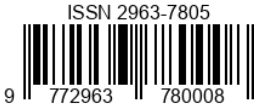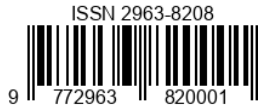Mengintegrasikan Teknologi IoT dan Smart Destinations dalam Pengelolaan Pariwisata Berkelanjutan
DOI:
https://doi.org/10.55606/jtmei.v3i3.4270Keywords:
Internet of Things (IoT, Smart Destinations, Technology CompatibilityAbstract
The integration of Internet of Things (IoT) technology with the concept of Smart Destinations offers an innovative solution in tourism management with the aim of improving operational efficiency and tourist experience. IoT technology, which includes interconnected sensor devices and communication systems, provides the ability to unify and manage various aspects of a destination in real-time. Meanwhile, Smart Destinations use digital technology to optimize the tourist experience through personalization, resource efficiency, and desire. This article discusses the background and key benefits of IoT integration in Smart Destinations, including improving the visitor experience through data and analytics, better crisis management, and more efficient resource management. Application examples such as smart parking systems, automated energy management, and providing contextual information to tourists through sensors are described to illustrate the practical application of this technology. However, challenges such as data privacy and security, technology compatibility issues, and significant investment requirements are also discussed. In conclusion, while this integration faces several obstacles, its potential benefits in improving the quality and efficiency of tourist destinations make it a promising approach for the future of the tourism industry.
Downloads
References
Ahn, J., & Lee, J. (2021). Integration of Internet of Things (IoT) and big data analytics in tourism management: A review. Journal of Hospitality and Tourism Technology, 12(3), 467-482. https://doi.org/10.1108/JHTT-08-2020-0156
Binns, A. (2018). Smart cities: Big data, civic hackers, and the quest for a new utopia. MIT Press.
Gössling, S., & Peeters, P. (2015). Assessing the contributions of tourism to global warming. Journal of Sustainable Tourism, 23(6), 1157-1175. https://doi.org/10.1080/09669582.2014.981015
Gössling, S., Scott, D., & Hall, C. M. (2015). Tourism and water: Interactions, impacts and challenges. Channel View Publications.
International Telecommunication Union (ITU). (2018). The Internet of Things: A comprehensive guide for the tourism industry. Retrieved from https://www.itu.int/en/ITUT/IoT/Pages/default.aspx
Kumar, P., & Pundir, P. (2019). IoT and smart technologies for sustainable tourism: Opportunities and challenges. International Journal of Information Management, 46, 325-336. https://doi.org/10.1016/j.ijinfomgt.2018.11.002
Li, H., & Yang, Y. (2019). Smart tourism and sustainable development: The role of Internet of Things (IoT). In Proceedings of the 2019 International Conference on Smart Cities and Green Technology (pp. 102-110). IEEE. https://doi.org/10.1109/SCGT.2019.00022
Nguyen, T. H., & Choi, Y. (2020). IoT-based tourism management for sustainable development. In Proceedings of the 2020 International Conference on Green Technology and Sustainable Development (pp. 85-92). ACM. https://doi.org/10.1145/3385864.3385914
World Tourism Organization (UNWTO). (2020). Smart destinations: The future of sustainable tourism. Retrieved from https://www.unwto.org/smart-destinations
Zhou, T., & Zhang, D. (2020). Internet of Things for sustainable development: Technologies and applications. Springer.
Downloads
Published
How to Cite
Issue
Section
License
Copyright (c) 2024 Jurnal Teknik Mesin, Industri, Elektro dan Informatika

This work is licensed under a Creative Commons Attribution-ShareAlike 4.0 International License.








